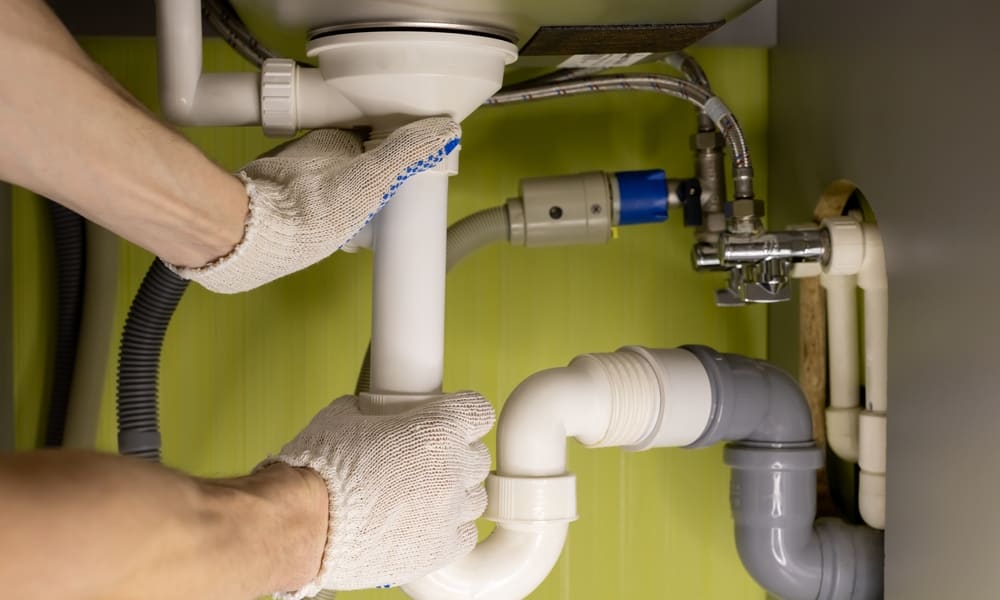How to Clean Drain Pipes Quickly and Effectively — Here’s How!
Clogged drains don’t have to be a weekend project. With a few simple steps and the right tools, you can restore water flow in minutes without harsh chemicals or costly plumber visits. This guide walks you through a fast, safe, and effective cleaning process.

What are some quick drain cleaning hacks?
When faced with a clogged drain, your first instinct might be to reach for harsh chemical cleaners. However, there are several quick and eco-friendly alternatives that can be just as effective. One popular method is the baking soda and vinegar trick. Start by pouring a pot of boiling water down the drain, followed by 1/2 cup of baking soda. Let it sit for a few minutes, then add 1/2 cup of white vinegar. The resulting fizzy reaction helps break down grime and buildup. After about 10 minutes, flush the drain with more hot water.
Another quick hack involves using a plunger. For sinks, cover the overflow hole with a wet cloth to create a better seal. Fill the sink with a few inches of water and plunge vigorously for 30 seconds to a minute. This pressure can often dislodge minor clogs effectively.
What natural ways can unclog pipes?
For those who prefer natural solutions, there are several options to unclog pipes without resorting to harsh chemicals. One method is to use a mixture of salt and hot water. Pour 1/2 cup of table salt down the drain, followed by boiling water. The abrasive nature of salt combined with hot water can help break down grease and other substances causing the clog.
Another natural approach is to use enzymatic cleaners. These products contain beneficial bacteria that eat away at organic matter in your pipes. While they work more slowly than chemical cleaners, they are safe for your plumbing and the environment. Regular use can help prevent future clogs by maintaining a clean pipe system.
What are safe home remedies for drains?
Safe home remedies can be just as effective as commercial products when it comes to drain maintenance. One simple yet powerful remedy is to use hot water regularly. Pouring a pot of boiling water down your drains once a week can help prevent the buildup of grease and soap scum.
For stubborn clogs, a combination of baking soda, salt, and cream of tartar can work wonders. Mix 1/4 cup of each ingredient and pour it down the drain. Follow with 1 cup of boiling water and let it sit for at least an hour (overnight is best). This mixture helps break down tough clogs without damaging your pipes.
How can you prevent future clogs?
Preventing clogs is often easier and more cost-effective than dealing with them after they occur. One of the simplest preventive measures is to use drain strainers in all your sinks and showers. These inexpensive devices catch hair, food particles, and other debris before they can enter your pipes.
Regular maintenance is key to preventing future clogs. Flush your drains weekly with hot water to remove any accumulating buildup. For kitchen sinks, avoid pouring grease or oil down the drain, as these substances can solidify and cause blockages. Instead, collect them in a container and dispose of them in the trash.
What tools are essential for DIY drain cleaning?
Having the right tools on hand can make DIY drain cleaning much more effective. A plumber’s snake or auger is an invaluable tool for tackling tough clogs. This flexible cable can be fed into the drain to break up or remove obstructions deep within the pipe.
A cup plunger is another essential tool for every household. Unlike a flange plunger used for toilets, a cup plunger is designed for flat surfaces like sinks and bathtubs. It’s effective for clearing minor clogs and should be your first line of defense before trying more invasive methods.
When should you call a professional plumber?
While many drain issues can be resolved with DIY methods, there are times when it’s best to call in a professional. If you’ve tried multiple cleaning methods without success, or if you’re dealing with recurring clogs, it may indicate a more serious problem within your plumbing system. Persistent slow drains, foul odors, or gurgling sounds coming from your pipes are all signs that you may need professional assistance.
| Service | Provider | Cost Estimation |
|---|---|---|
| Basic Drain Cleaning | Local Plumber | $75 - $225 |
| Hydro Jetting | Specialized Plumbing Service | $250 - $800 |
| Camera Inspection | Professional Plumbing Company | $100 - $400 |
| Rooter Service | Drain Cleaning Specialist | $150 - $500 |
Prices, rates, or cost estimates mentioned in this article are based on the latest available information but may change over time. Independent research is advised before making financial decisions.
In conclusion, maintaining clean and clear drain pipes is an essential part of home maintenance. By employing quick drain cleaning hacks, using natural unclogging methods, and implementing preventive measures, you can keep your plumbing system in top condition. Regular attention to your drains can save you time, money, and the hassle of dealing with major plumbing issues down the line. Remember, while many drain problems can be solved with DIY methods, don’t hesitate to call a professional when faced with persistent or complex issues.




